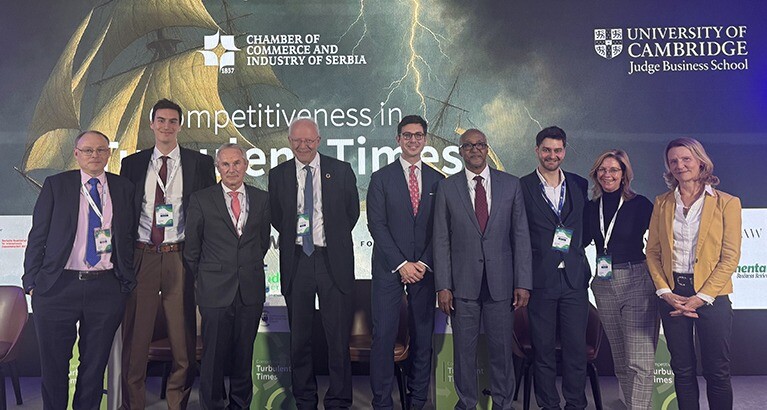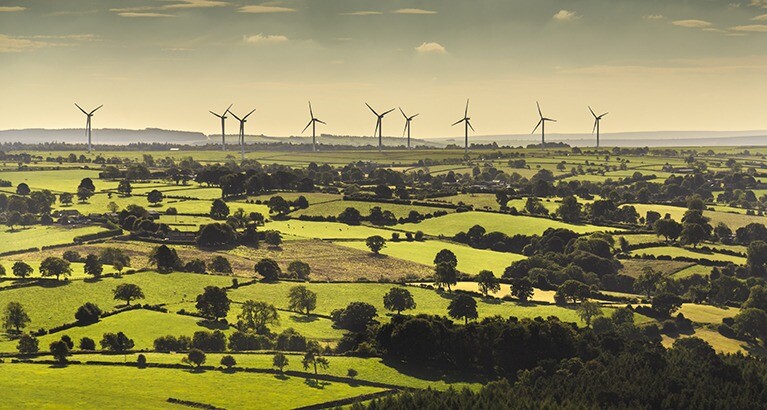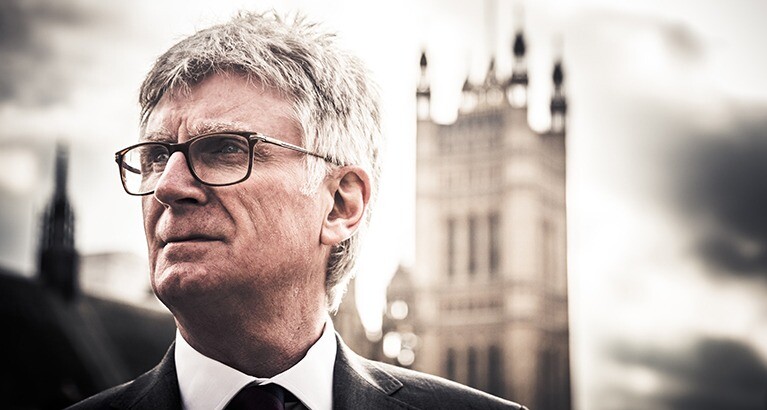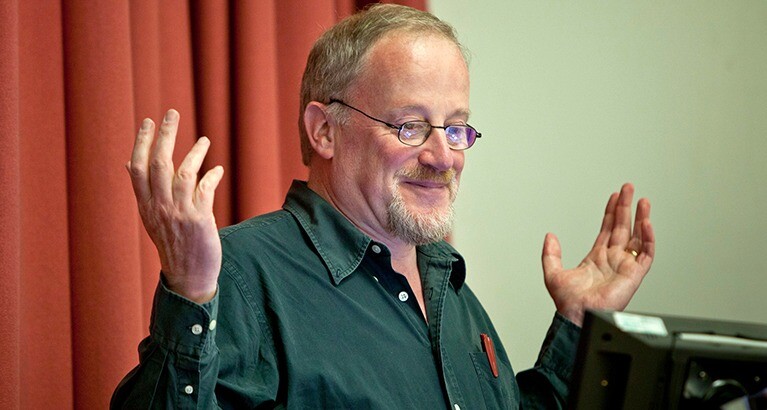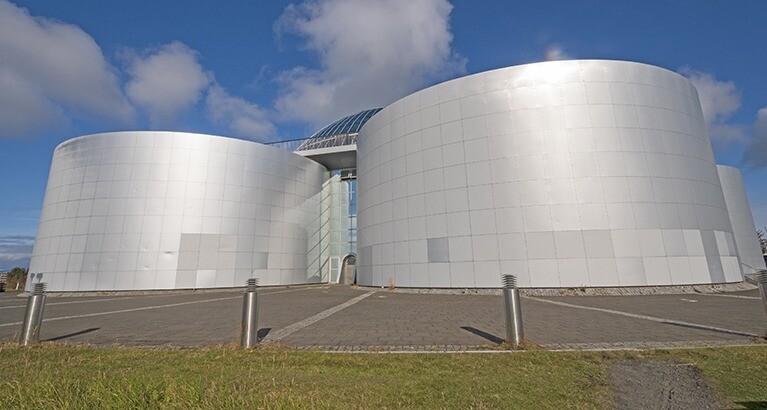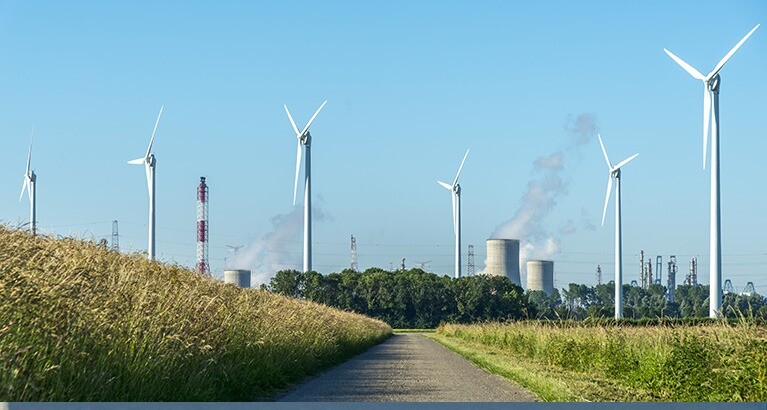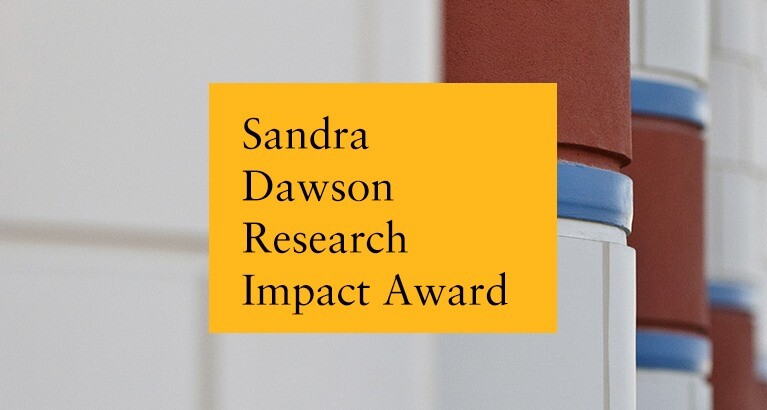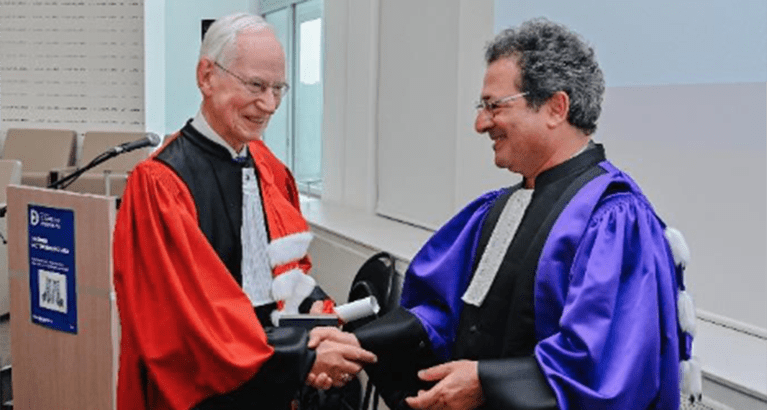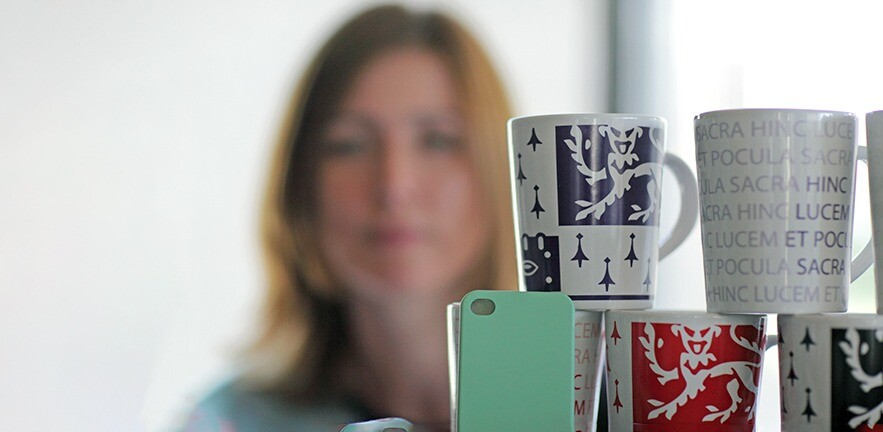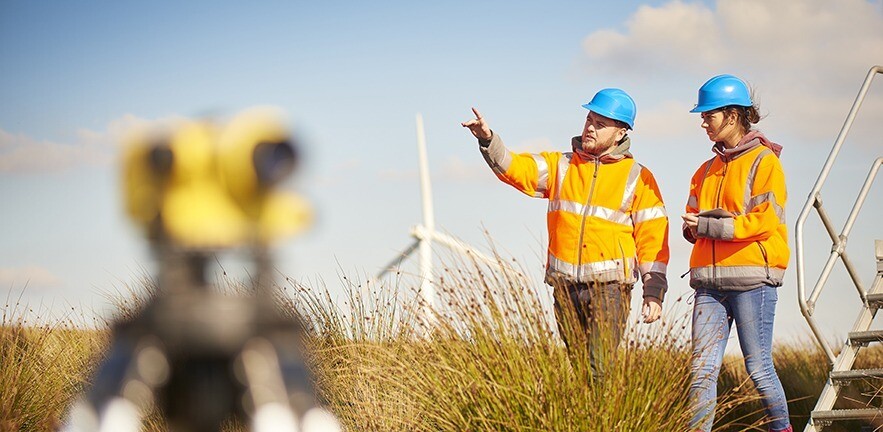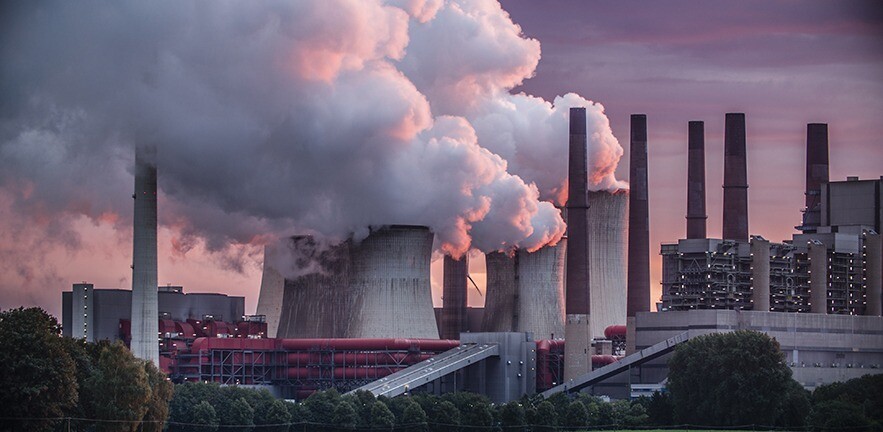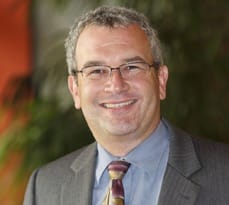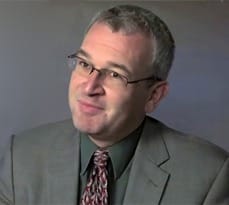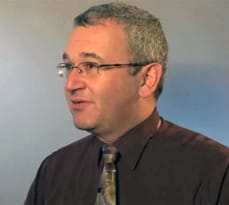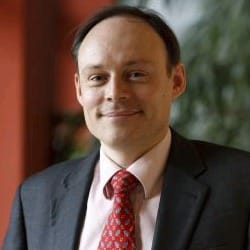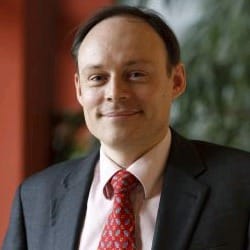News from EPRG and its members
Cambridge Judge Business School faculty and staff were among participants at the Sustainable Development Forum 2025 held in Belgrade, Serbia, on 30-31 October, which focused on cross-sector collaboration involving government, industry and academia in order to tackle the green transition and achieve sustainable development.
Research centre news
Tariff strategy could drive small EV adoption
In 2024, the US and the European Commission both raised tariffs on electric vehicles (EVs), which could slow adoption. To counteract those concerns, new research from academics across 4 countries urges policymakers to adjust EV import tariffs based on vehicle size to accelerate global clean transport adoption.
Research centre news
White House report cites study on carbon removal technologies
The 2025 Economic Report of the President submitted to the US Congress cites research from the Energy Policy Research Group based at Cambridge Judge Business School on cost and scalability of carbon capture and storage.
Faculty news
What does 2025 have in store?
Cambridge Judge faculty offer their New Year’s thoughts on sustainability, enterprise, disinformation, the workplace and business education.
ESG and sustainability
Green growth vs productivity: the UK’s energy dilemma
Politicians should admit green growth has a tradeoff that will hurt UK productivity growth through the 2020s, says a study of the UK energy sector co-authored by Professor Michael Pollitt and Dr Victor Ajayi.
Governance, economics and policy
Not every sceptic is a conspiracy theorist
Governments seeking a societal response to major issues need a different approach to dispelling scepticism among single-issue sceptics and those more broadly sceptical, says research from the Energy Policy Research Group.
Governance, economics and policy
UK must learn from the past to achieve net zero by 2050
Britain needs to learn from past success and failure in focusing on practical mechanisms to reach the country’s net zero goal, say Professors Michael Pollitt and David Reiner.
Research centre news
In memoriam: Ross Anderson (1956-2024)
In memoriam: Ross Anderson (1956-2024), EPRG Associate and friend.
ESG and sustainability
Is it possible for UK domestic heating to be fully electrified?
Thermal energy storage may hold the key to fully electrifying UK domestic heating to cut emissions, according to research by Professor David Reiner of Cambridge Judge.
Governance, economics and policy
Does religion have the power to persuade us to take climate action?
Professor Michael Pollitt of Cambridge Judge Business School has written extensively on faith and climate policy. He says climate-change campaigners get it wrong by using ‘apocalyptic’ language of hell rather than a positive message of change.
ESG and sustainability
Renewable or nuclear? What your energy preference says about you
Support for renewable energy sources such as solar and wind is linked to a belief that climate change will be catastrophic, while supporters of nuclear power tend to be less concerned about climate risks, says study at Cambridge Judge Business School.
Global strategy and international business
How seeing beyond academic boundaries creates impact
Faculty members Mark de Rond and Kamiar Mohaddes win the 2023 Sandra Dawson Research Impact Award at Cambridge Judge Business School.
AI and technology
Podcast helps illuminate and simplify science and tech
David McKay, an alumnus of the MPhil in Technology programme (MPhil 2010), seeks to make complicated topics understandable through his ‘Standing on the Shoulders of Giants’ podcasts.
AI and technology
What type of negative emissions technologies should be prioritised?
Combating global warming will require removing carbon and not just reducing new emissions. A new study co-authored by Professor David Reiner of Cambridge Judge Business School identifies the most promising approaches.
ESG and sustainability
Why geoengineering research has been held back by conspiracy theories
Social media postings about solar geoengineering techniques that may combat global warming show the “spillover” effect of conspiracy theories on research.
Entrepreneurship and innovation
Looking at 2023
Cambridge Judge Business School faculty offer their insights and opinions on what to expect in 2023 in areas ranging from entrepreneurship to climate change to disinformation.
Research centre news
How to boost social media engagement for climate-change action
Public sentiment on social media (including fear, sadness and anger) is highly reactive to global policy actions, finds study co-authored at Cambridge Judge Business School based on more than 250,000 tweets over a 13-year period.
Governance, economics and policy
Why COP27 was always going to just be a placeholder
It is unrealistic to expect breakthroughs at every climate summit yet they are still important, says David Reiner, Professor of Technology Policy at Cambridge Judge Business School.
Governance, economics and policy
No ‘blank cheque’ for Energy Price Guarantee outlays, says Cambridge paper
British taxpayers ‘deserve an accounting’ of energy cap spending including whether it stimulates long-term UK energy investment, says new paper from Energy Policy Research Group at Cambridge Judge Business School.
Research centre news
David Newbery awarded the honorary title of Doctor by Université Paris Dauphine
Professor David Newbery, Director of the Energy Policy Research Group at Cambridge Judge Business School, was awarded the title and insignia of Honorary Doctor at a ceremony in Paris on 2 June 2022.
ESG and sustainability
Cambridge study finds executive pay will be affected by climate change
A more 'holistic' approach will be developed to link executive pay to climate-change metrics across the supply chain, says a new study by Robert Ritz of Cambridge Judge Business School.
Faculty news
Public or private energy?
Renationalisation is not the solution to the current supply and pricing issues in the energy market, Professor Michael Pollitt of Cambridge Judge says in a new podcast.
Dr Chi Kong Chyong of the Energy Policy Research Group at Cambridge Judge Business School says that Russian gas will fund Putin’s war on Ukraine no matter what decisions Europeans might take.
Marketing
Looking at 2022
Cambridge Judge Business School faculty offer their insights and opinions on what to expect in 2022 in areas ranging from climate change to workplace technology to business education.
Insight
Final COP26 reflections
David Reiner, Associate Professor in Technology Policy at Cambridge Judge Business School, says future climate-change investment rather than words will be the test of COP26.
David Reiner, Associate Professor in Technology Policy at Cambridge Judge Business School, looks back at the first week of COP26.
aculty and other experts at Cambridge Judge Business School can offer expert opinion on various issues that may arise at the COP26 climate-change summit in Glasgow. If you would like to contact any of these faculty members, please email press-publicity@jbs.cam.ac.uk
Insight
Glasgow thoughts
Why is COP26 a big deal but not much may happen? A blogpost by David Reiner, Associate Professor in Technology Policy at Cambridge Judge Business School, lays out the background and his opinions going into the event in Scotland.
Insight
Electric attitudes
New study led by University of Cambridge researchers, based on 36,000 Facebook posts, finds that social justice and health issues impact electric vehicle uptake.
New funding is provided for the UK Carbon Capture and Storage Research Centre, which includes David Reiner of Cambridge Judge Business School as an investigator.
Insight
Flexible energy markets
How can regulators better support the trend toward intermittent renewable energy connected to lower voltage distribution networks in order to prevent network overload? Regulatory changes so far vary widely, finds a new paper from Cambridge Judge Business School.
Four researchers at Cambridge Judge Business School are named to the #ThinklistNext21 for their research in responsible business.
Misc news
Sustainable investment
Look more closely at corporate divestitures of carbon-heavy assets, writes Robert Ritz, Senior Research Associate in Economics and Policy at Cambridge Judge Business School.
Insight
Climate targets
Extending EU Emissions Trading System to buildings and transport will require measures to protect the most vulnerable consumers, says report co-authored by Professor Michael Pollitt of Cambridge Judge Business School.
Insight
Predicting energy use
In the UK and many other countries, energy use in buildings is the single largest source of greenhouse gas emissions, so a study co-authored by Dr David Reiner of Cambridge Judge develops a new model to forecast residential building stock.
Insight
Looking at 2021
Cambridge Judge faculty talk about what to expect in 2021 in areas ranging from manufacturing to the workplace to the arts.
Misc news
Green economy?
It is 'wishful thinking' that the UK will benefit disproportionately from new environmentally oriented policies, most of which create few jobs, says Professor Michael Pollitt.
Insight
Leadership lessons: biofuels
Karl W. Feilder of biofuels producer Neutral Fuels talks to Dr David Reiner of Cambridge Judge Business School about sustainability and turning cooking oil to fuel.
Insight
AI in energy policy
New paper co-authored by Dr Kamiar Mohaddes of Cambridge Judge Business School develops framework using artificial intelligence for better energy policy research in the Global South.
Eight faculty members from Cambridge Judge Business School to present at the 30th Alumni Festival of the University of Cambridge 17-26 September.
Insight
Climate change
The Paris Agreement has no national quotas on CO2 removal, and new study co-authored by Dr David Reiner says that must be addressed.
Insight
Cambridge Zero
The new Cambridge Zero initiative of the University of Cambridge will generate ideas to help shape a sustainable future. David Reiner and Michael Pollitt of Cambridge Judge Business School are among those involved. Cambridge is the brand-new holder of a dubious record. On 25 July 2019, the temperature at the University's Botanic Garden hit a new all-time record high for the UK: 38.7°C. Few expect this record to hold for long. As temperatures rise globally, extreme weather events – floods, storms, droughts and heatwaves – are becoming the new normal. The Intergovernmental Panel on Climate Change (IPCC) has clearly articulated that, if this continues, we risk venturing into a world of climate-driven food shortages, water stress, refugees, species loss and catastrophic shocks such as the collapse of the vast polar ice sheets. Scientists have been warning for decades that man-made climate change is happening. But with a few exceptions, we have done little about it. In the past 18 months, however, there has been a noticeable shift. "The basic science hasn't changed: what is starting to change is public opinion," says Dr Emily Shuckburgh, one of the UK's leading climate scientists. "As the impacts of climate change are starting to…
Why renationalising the UK energy system would not advance the country’s climate and energy goals. By Professor Michael Pollitt, Professor of Business Economics at Cambridge Judge Business School Along with rail, mail, water and broadband, the UK Labour Party has announced plans to bring energy back into public ownership in its election manifesto. Labour has big plans to reduce the UK's carbon emissions by also investing in more renewable energy and it believes public ownership is the best way to do this. But the evidence suggests the opposite. If we look at the plans in detail and the realities of the energy sector, re-nationalising the UK's energy networks is a bad idea. The details in the manifesto are relatively scant. But they nod to the more detailed plans that the party published in May with the document Bringing Energy Home and the vote at the 2019 Labour Party conference to nationalise the big six energy suppliers. What is proposed? The party proposes nationalising the wires that transmit electricity and pipes that feed the country's gas supplies. Altogether there are 10 firms in the UK, including the National Grid, UK Power Networks and Cadent, which would return to public control. Six…
Sustainable fuels could play an important role in reducing transport emissions even as electric vehicles become cheaper, says a new study from VTT and the University of Cambridge. While electric vehicles are becoming cheaper, sustainable fuels could also play an important role in reducing transport emissions in order to meet climate-change goals, says a new study by VTT Technical Research Centre of Finland and the University of Cambridge Judge Business School. Sustainable fuels have much potential to help decarbonise road transport in the near term, particularly for use by long-range vehicles, says the study just published in Joule, a leading journal focusing on sustainable energy published by Cell Press. The research says, in effect, that while policymakers are rightly enthusiastic about the potential for electric vehicles to cut road emissions, we should not lose sight of the limitations of such vehicles for long-haul transport and the corresponding need to also develop sustainable fuels. The study and its conclusions are based on what the authors believe is the first like-for-like comparison of near-term costs of various road-transport decarbonisation options including battery electric vehicles (BEVs) and carbon neutral synthetic fuels (CNSFs), which can be divided into fuels produced from biomass via gasification…
Insight
In search of good energy policy
Energy policy debates usually revolve around science and technology, but a new book co-edited by Michael Pollitt and David Reiner of Cambridge Judge Business School takes a multidisciplinary approach based in the social sciences and humanities. Discussions of energy policy often tend to drift into debate about how technological solutions advanced by scientists meets resistance in the form of political complexity. A new book co-edited by Professor Michael Pollitt and Dr David Reiner of Cambridge Judge Business School instead adopts a multidisciplinary approach to energy policy – drawing on disciplines as diverse as anthropology, theology, history and the humanities. The book just published by Cambridge University Press – In Search of Good Energy Policy – is the culmination of a four-year Energy@Cambridge project that brought together 20 academics from 11 University of Cambridge departments, and also involved researchers from other universities and centres. There are 40 contributing authors to the book. "We wanted to hear from anthropologists and lawyers and others in a multidisciplinary approach," Michael Pollitt, Professor of Business Economics at Cambridge Judge, told a 5 June Cambridge seminar about the new book, which was part of the CRASSH (Centre for Research in the Arts, Social Sciences and Humanities)…
In a world where the UN and climate scientists have recently issued sober warnings about the urgency of taking action on climate change to prevent the worst impacts, it has never been more important to assess the state of renewables and the wider energy landscape. We asked two crucial questions of Cambridge Judge alumni working in the energy sector.
A 'tough sell': why it is so difficult to address climate change on a global scale. In this episode, joining podcast host Michael Kitson, University Senior Lecturer in International Macroeconomics at Cambridge Judge Business School, are Cambridge Judge faculty Michael Pollitt, Professor of Business Economics, and David Reiner, University Senior Lecturer in Technology Policy. This is the 10th in a series of "Cambridge Judge Business Debate" podcasts featuring faculty and others associated with Cambridge Judge Business School and the broader Cambridge community. This latest podcast focuses on energy policy – the nature of the challenges, the difficulty in addressing climate change, and a few bright spots surrounding wind and solar power. Here is an edited transcript of some of the podcast discussion: How has the challenge of energy and energy policy changed? Michael Kitson: "One of the primary drivers of economic growth since the Industrial Revolution has been access to energy. But the industry is in transition and faces major challenges. The burning of fossil fuels has caused major damage to the environment. Many companies rely on international supplies of energy; this has been fine in a stable global economy, but with an increasingly fragmented global economy the issue of global…
The financial crisis has revived the notion of industrial policy in the UK. But how is it different today from the 'discredited' policies of the 1970s, and do we risk betting on winners once again? In this episode, joining podcast series host Michael Kitson, University Senior Lecturer in International Macroeconomics at Cambridge Judge Business School, are Alan Hughes, Professor of Innovation at Imperial College Business School and former Director of the Centre for Business Research at Cambridge Judge Business School, and Michael Pollitt, Professor of Business Economics at Cambridge Judge. This is the sixth in a series of “Cambridge Judge Business Debate” podcasts featuring faculty and others associated with Cambridge Judge Business School and the broader Cambridge community. This sixth podcast focuses on the topic of Industrial Policy, which has been in the news since the November 2017 publication of the UK government’s White Paper entitled “Industrial Strategy: Building a Britain Fit for the Future”. Here are some of the issues raised in the podcast, along with edited excerpts of remarks made by the panellists: The financial crisis has revived the idea of “industrial policy” Michael Kitson: “Since the financial crisis and the great recession, there’s been a re-evaluation of…
Insight
Carbon price floor
The European Union should adopt a minimum price on carbon dioxide from electricity generation to boost low-carbon investment, says a new paper from the Energy Policy Research Group at the University of Cambridge. The European Union should introduce a minimum price on carbon dioxide from electricity generation to accelerate low-carbon investment and the switch from coal-fired generation to cleaner gas, says a new paper from the Energy Policy Research Group (EPRG) at Cambridge Judge Business School. Such a minimum price could be introduced within the EU’s existing Emissions Trading Scheme (EU ETS), effectively “topping up” the EU ETS price, says the paper. Currently, carbon prices in the EU lie well below levels needed to deliver on ambitious climate targets. “An EU carbon price floor for the power sector would constitute a significant improvement to the EU ETS,” the paper concludes. “This would reaffirm the EU’s position as a climate leader and contribute to achieving its ambitious decarbonisation targets.” Given the political difficulty of quickly implementing such an EU-wide carbon price floor, the paper says that individual EU countries might as an interim step wish to introduce a national carbon price floor, as Great Britain has already done and the Netherlands…
Professor Michael Pollitt and Professor Paul Tracey of Cambridge Judge are honoured with the School’s 2018 Sandra Dawson Research Impact Award.
Insight
The EU single market at 25
A conference at Cambridge Judge marked the 25th anniversary of the European Union's single market, in advance of a special issue of the Review of Industrial Organisation journal. There has been much progress, but plenty of work remains to translate institutional change into greater consumer benefit. The European Union's border-free "single market" came into effect on 1 January 1993, and to mark its 25th anniversary a special issue of the Review of Industrial Organization journal will be published early next year with eight papers on a variety of topics related to the single market. The guest editors of the special journal issue are Cambridge Judge Business school faculty members Michael Pollitt, Professor of Business Economics, and Christos Genakos, University Senior Lecturer in Economics, who organised a conference at Cambridge Judge on 20 April entitled "Review of Industrial Organization Celebrating 25 Years of the EU Single Market". "Several presentations focused on how significant progress has been made in integration over the past quarter-century, but a lot of work remains to be done in certain areas," says Christos. "Some of the impressive institutional reform has not yet had a dramatic effect on consumers, so that's an area we'll look closely at in…
Submissions sought for special issue of the journal Review of Industrial Organization, guest edited by two Cambridge Judge faculty, focusing on 25 years of the European Union’s single market. Cambridge Judge Business School and the London-based Centre for Economic Policy Research are coordinating a special issue of the journal Review of Industrial Organization focused on “25 years of the European Single Market”, and are seeking submissions in various areas of competition policy. Guest editors of the special issue are Michael Pollitt, Professor of Business Economics at Cambridge Judge, and Dr Christos Genakos, University Senior Lecturer in Economics at Cambridge Judge. The editors are particularly interested in papers concerning costs and benefits of the single market, and the evolution of competition in manufactured goods or services; the evolution of airline competition; policy and public authority coordination problems; and market extension impacts. The single market of the European Union was created through enactment of the Single European Act in 1986, and was launched on 1 January 1993. The single EU market includes the four freedoms of movement – goods, services, people and capital. A one page abstract of suggested submissions to the special issue is due by 15 September 2017, with notification…
Insight
Brexit and energy
Britain can play the role of an innovative 'California' in addressing European energy policy issues post-Brexit, says Professor Michael Pollitt of Cambridge Judge Business School. Brexit could lead to the UK playing the role of an inventive "California" within Europe in promoting experimentation and the use of new technology in tackling energy policy issues, according to a new paper by Michael Pollitt, Professor of Business Economics at Cambridge Judge Business School. California often promotes innovation, owing to the relative slowness of procedures at the federal level in the US, and Britain may play a similar role within a relatively slower Europe in innovatively addressing energy matters. The UK has led the world with large-scale local experimentation with its Low Carbon Networks Fund (now called Network Innovation Competition), but such local experimentation is "not well suited" to central direction from the European Commission, says the paper – "The Economic Consequences of Brexit: Energy", published in the Oxford Review of Economic Policy. "This suggests that the UK can play the role of a 'California' within Europe in promoting experimentation, the use of new technology and seeking to innovatively address energy policy issues," the paper says. "The key is that such an approach…
UK Carbon Capture and Storage Research Centre, whose Deputy Director is David Reiner of Cambridge Judge, gains £6.1 million in new funding for next five years. The UK Carbon Capture and Storage Research Centre, whose Deputy Director for Systems and Policy is Dr David Reiner of Cambridge Judge Business School, has been awarded £6.1 million by the Engineering and Physical Sciences Research Council to continue its work for the next five years. The goal of the Centre’s next phase is to ensure that carbon capture and storage (CCS) "will play an effective role in reducing net CO2 emissions while securing affordable and controllable electricity supplies, low carbon heat and competitive industries for the UK," the Centre said. The Centre’s main activities are delivered by six institutions: the University of Cambridge, British Geological Survey, University of Edinburgh, Imperial College London, University of Nottingham, and University of Sheffield. David Reiner, Senior Lecturer in Technology Policy at Cambridge Judge, said: "One of the innovations of the new centre is that we will tackle technical, economic and social questions associated with bioenergy plus CCS, a negative emissions technology (NET), which the last major international climate report (IPCC 5th Assessment Report) identifies as a leading…
Leicester's commitment to a local energy policy shows it takes more than good intentions to get results, and that challenges lie ahead.
The impact of energy technology is at the heart of the climate change debate, and Dr David Reiner, Senior Lecturer in Technology Policy, says it's important to see both sides. "I have to see both sides of the argument," says Dr David Reiner, Senior Lecturer in Technology Policy at Cambridge Judge Business School, about his work on the thorny subject of fracking. "If my research is useful to both sides – large energy companies such as Shell and campaign groups such as Greenpeace and Friends of the Earth – then I am doing my job." Reiner specialises in regulatory design, environmental policy and understanding the public acceptability of energy technology and environmental policy. Part of his work is to understand why some new technologies evoke more opposition – and why some firms are more successful than others in convincing the public to accept them, whether that be smart meters, carbon capture and storage, or fracking. A graduate of Princeton and MIT, Reiner claims he became an academic by accident. Growing up in the cold of Montreal, energy had always played a big part in his life. "At the time, a huge dam was being built at James Bay to supply…
Global learning is needed to save carbon capture and storage from being abandoned, says David Reiner of Cambridge Judge Business School. Carbon capture and storage, which is considered by many experts as the only realistic way to dramatically reduce carbon emissions in an affordable way, has fallen out of favour with private and public sector funders. Corporations and governments worldwide, including most recently the UK, are abandoning the same technology they championed just a few years ago. In a commentary published today (11 January) in the inaugural issue of the journal Nature Energy, David Reiner of Cambridge Judge Business School argues that now is not the time for governments to drop carbon capture and storage (CCS). Like many new technologies, it is only possible to learn what works and what doesn't by building and testing demonstration projects at scale, and that by giving up on CCS instead of working together to develop a global 'portfolio' of projects, countries are turning their backs on a key part of a low-carbon future. CCS works by separating the carbon dioxide emitted by coal and gas power plants, transporting it and then storing it underground so that the CO2 cannot escape into the atmosphere.…
News
‘Good’ energy policy
In his inaugural lecture, Michael Pollitt outlines the social limits to technology solutions to energy and climate problems. Finding a "good" energy policy is devilishly difficult owing to the many social and logistical barriers to achieving the right solution, Professor Michael Pollitt said in his inaugural lecture on 7 October at Cambridge Judge Business School. While energy policy in every country aims to deliver secure, affordable and clean energy, factors that complicate this goal include limitations in technology, unequal wealth distribution, failures in predicting many benchmarks including petroleum production, and differing definitions of "good" and "just," Pollitt said. The dictionary may define "policy" as a definite "course of action adopted by a government, ruler, political party, etc." – but in fact energy policies develop in unpredictable ways – and it's a fallacy to think that "the 'right' technology can 'save' us," he said. "What we need is a multi-disciplinary approach to help us arrive at a 'better' energy policy. This would draw on the core interests of social science and the humanities in perception, quantification, well-being, public trust, the role of the state, competence and complex policy problems." Pollitt said in the lecture, entitled "In Search of 'Good' Energy Policy:…
Do we control technology, or does technology control us? That's a question that every business, government and individuals should be asking themselves on a regular basis – the temptation to "follow the trend" when it comes to making business decisions about technology is all too easy. Managers today are faced with major technological choices that will affect both internal efficiency and customer satisfaction, often in the long- as well as short-term, and these choices are becoming more complex – and therefore difficult to get right. At the same time decision-makers face increasing involvement from government and other public bodies in setting standards and introducing regulation. Indeed, it is this conundrum that draws students and employers to the MPhil in Technology Policy, according to Professor Michael Pollitt, who will be leading the programme from next year. "The way we teach technology policy is not purely about the workings of specific technologies – it is as much about the social science that surrounds them," he says. To this end the group is located within the Economics & Policy group of Cambridge Judge Business School (although it enjoys strong links with other Cambridge departments, in particular Engineering). Pollitt points out that many of…
‘Turkish Stream’ would work against European consumers, says Cambridge Judge researcher. Russia’s recent decision to abandon plans for a "South Stream" energy pipeline in favour of a "Turkish Stream" that avoids troubled Ukraine would work to the detriment of European consumers, says Chi-Kong Chyong, a member of the Economics and Policy subject group at Cambridge Judge Business School. By seeking to move the pipeline farther south, Russia would force European Transmission System Operators (TSO) to pay for infrastructure to deliver gas to their home markets from a new hub on the border of Turkey and Greece. Such a move would also make it easier for Russia to control prices by manipulating gas volumes because the hub would be placed outside the EU, in Turkey, and thus outside the authority of EU regulators, says Kong, a researcher at the Energy Policy Research Group at Cambridge University. Such a move would also mean that Ukraine would lose geopolitical clout, thus making it less attractive to Western Europe as a trading partner – a result that Russia would welcome, he says. Kong has written at length on this subject in an article entitled "Does Russia's Turkey pipeline make sense?" in the Brussels-based online…
Labour's proposed energy price freeze exposes the need for politicians to be more honest with voters, writes Professor Michael Pollitt of Cambridge Judge Business School. Energy policy has shot to the top of the political agenda in recent months following proposals from the Labour Party to freeze energy prices for 20 months if it wins power at the next election. As an academic economist, it is difficult to adequately describe the intellectual contempt that a policy that defies economic sense deserves. While it is good that potential energy policies are put before voters, I believe there is a danger that many of the key points will get lost in the political battles. Any energy policy must address three issues: the affordability of energy; ensuring security of supply; and the environmental impacts of energy. The conflict between these three goals is known as the "energy trilemma" and all governments have to grapple with this. The questions we need to ask of any set of proposals are therefore: how will this contribute to improving one or all of those three aspects, will it worsen them and, if so, is there an acceptable trade-off? Fixing final energy prices is quite a common policy…
EU 2030 climate plan a missed opportunity, say Cambridge energy academics.
Misc news
Workshop warms to smart energy
The smart approach to solving our energy problems and decarbonising the economy was the subject of a recent workshop hosted by the Energy Policy Research Group, which is based at Cambridge Judge Business School. The Distributed Generation and Smart Connections workshop, held in partnership with UK Power Networks, brought together academics, practitioners and network operators to look at the future of smarter energy connections. Distributed generation refers to small scale generating units connected to the electricity distribution network or to the customer's side of the meter – such as wind and solar farms, or solar roof units. It is also known as decentralised generation, dispersed generation or embedded generation. The workshop was responding to UK government objectives and targets for de-carbonising the economy, which are putting the onus on distribution network operators to develop smart solutions, including smart grids, to promote distributed generation from all types of generating technologies, including wind and solar power. James Veaney, Head of Distribution Policy for OFGEM, and Henning Parbo, Chief Economist of Denmark's Energinet, started the four sessions by looking at the role of regulation, and how it is playing an important part in establishing rules and guidelines for the energy industry to work within.…
Research from Cambridge Judge Business School has been instrumental in developing a new system of energy market regulation Research from Cambridge Judge Business School's Dr Michael Pollitt, Reader in Business Economics, and Dr Stephen Littlechild, Fellow in Privatisation, Regulation & Competition, has been instrumental in developing a new system of regulation which encourages engagement with customers, say energy regulators. Cambridge Judge Business School's regulatory unit is respected internationally as possibly the leading institution in economic regulation," says former Ofgem CEO Alistair Buchanan. "Their views and models are sought across the globe. He adds that Dr Pollitt and Dr Littlechild's involvement provided credibility to Ofgem's 'very significant' RPI-X@20 review of network prices. Energy network charges make up around 20 per cent of the total charges that a typical householder pays. Dr Pollitt and Dr Littlechild's body of research, carried out between 2006 and 2009, aimed to improve upon the then current system of controlling annual price changes within energy networks, which used a formula known as RPI -X (retail price index, or simply the rate of inflation, minus X, in which X is the efficiency factor) and dated from the early 1980s. However, by 2005, energy networks had been price cap…
A research project that will influence how Europe sets its overarching climate and energy objectives for 2030 has attracted a donation of £190,000 The Energy Policy Research Group (EPRG), a joint research centre based at Cambridge Judge Business School and the Faculty of Economics at the University of Cambridge, recently received a donation from the Enel Foundation to support a two-year research project on Zero Subsidy Scenarios and International Natural Gas Markets. The project will run from 1 October 2013 to 30 September 2015. The overall objective is to understand: the role of energy subsidies in the European electricity sector the role of natural gas in the European electricity generation mix under different energy market and policy scenarios. Together, the two elements of the project combine to address the complex interactions between different stakeholders in the electricity, natural gas and carbon markets. The project is timely as the outputs will feed in to ongoing debates within the European Union over the fate of existing subsidy regimes and climate and energy objectives for 2030. The expected output is publication in leading academic journals on the subject of energy economics, policy and management. During the project we also expect to contribute to…
Tax the big emitters and use the £50bn a year raised to lower income tax and VAT. Result? Make energy bills more affordable by putting more cash in the pockets of ordinary households. The answer to his energy woes is staring David Cameron in the face says Cambridge Judge Business School's climate change economist Dr Chris Hope, former specialist advisor to the House of Lords Select Committee on Economic Affairs. Chris says the current complicated mixture of levies and subsidies is not the best way to achieve reduction in greenhouse gases anyway, and politicians need to think more creatively about policies to tackle emissions and the rising cost of living: A comprehensive, rising tax on all CO2 and other emissions may well be better, as both the OECD and IMF have suggested recently. Work that we have done here at Cambridge Judge Business School has shown that a tax of at least £60 per tonne of CO2 is justified by the damage done by climate change*. This would be a better solution as the revenue raised by such a climate change tax could be used to reduce other taxes that are hurting hard-pressed families and holding back economic growth, such…
Cambridge Programme for Sustainability Leadership (CPSL), together with Cambridge Judge Business School and the support of the European Climate Foundation has launched the first in what should be a prominent series of business briefings on the new IPCC report on climate change.
Listen now…
The Cadbury Archive at Cambridge Judge Business School has been completed with the addition of copies of all the speeches on corporate governance made by Sir Adrian Cadbury, Chairman of the UK Committee on the Financial Aspects of Corporate Governance. The Archive, established in 2010 and part of the Cambridge Corporate Governance Network (CCGN), is a major source for researchers into corporate governance. Dr Ian Jones of the University of Oxford and Dr Michael Pollitt of Cambridge Judge Business School lead the Ethics, Regulation and Globalisation project at Cambridge's Centre for Business Research (CBR). They argue that the governance laid down in the Cadbury Code has been interpreted too narrowly and the human side has been missed.…
A recognised climate change expert and government adviser has defended the European Union's Emission Trading System (EU ETS) and says it is working as originally planned. The European Parliament has approved a plan to delay the sale of emission allowances – backloading – to boost the depressed price of carbon. However, Dr David Reiner, University Senior Lecturer in Technology Policy at Cambridge Judge Business School, says that the failure of the flagship EU ETS, at the heart of Europe's climate policy, could be seen to indicate a failure of the policy as a whole. "The reality is that it is working as its supposed to, which is that you allocate permits at the start and over the course of time you need to meet your final target, and if you happened to have more permits you can sell them off, and if you happen to be short of permits you'll have to buy some more." In an interview for Cambridge Judge Business School's website, Dr Reiner says that firms and European member states are behaving 'completely rationally' and that there are two principle reasons for the ETS problems. The first stems from the aggressive nature of member states in grabbing…
Symposium brings together leading experts in a bid to tackle food and water scarcity With soaring food prices and water scarcity affecting a huge percentage of the world's population, the Centre for International Business and Management (CIBAM) will be hosting a symposium called 'Securing Food and Water' to look for possible ways to tackle the problem on 28 June 2012 at Cambridge Judge Business School. Shaping up to be an intensive event, the symposium, brings together leading business people, academics, policymakers and representatives of NGOs and international organisations to discuss the challenges presented by the uneven distribution of global resources, the increasing demand for food, and shortages of safe drinking water. The theme was proposed by Professor Sir Leszek Borysiewicz, Vice Chancellor of the University of Cambridge, who will give the keynote address, following the welcome address and introduction from Professor Christoph Loch, Director of Cambridge Judge Business School, and Dr Christos Pitelis, Director of CIBAM. Jose Lopez, Executive Vice President of Nestle, and Commissioner Maria Damanaki, EU Commissioner on Maritime Affairs and Fisheries, will give the business keynote lecture and policy keynote lectures respectively, which will each be followed by two panels of expert speakers, including Dr Michael Pollitt,…
Video
A case of bad PR
Research into the communication of information around all-important CCS, Carbon Capture and Storage, has revealed serious flaws which could hinder deployment of the technologies.
Misc news
What’s going to keep the lights on?
Dr Michael Pollitt discusses the use of fossil fuels at this year's Guardian Open Weekend Dr Michael Pollitt, Director of Programmes at Cambridge Judge Business School, joined a panel of guest speakers to debate on the effects of continually using fossil fuels at this year's Guardian Open Weekend. Guest speakers from around the world joined The Guardian's own writers, editors, digital developers and photographers to participate in over 200 programmed sessions, a mix of debates, talks, workshops, music, comedy and poetry readings at Kings Place in London over the weekend of 24 and 25 March 2012. Dr Pollitt was joined by Damian Carrington, Head of Environment at the Guardian, Ed Davey, MP, Secretary of State for Energy and Climate Change, and Caroline Lucas, MP for Brighton Pavilion and Leader of the Green Party of England and Wales, in a discussion called 'What's going to keep the lights on?' which looked at how and when we are going to wean ourselves off fossil fuels. In his speech, Dr Pollitt covered three key principles – the successful experience with privatised electricity and gas markets, the incentive regulation of energy networks, which has delivered prolonged cost reductions and improved quality of service, and…
Podcasts
Taking the long view
Dr Michael Pollitt defends the energy industry in the wake of criticism over their rising profits by their regulator Ofgem.
Podcasts
Energy sapping
'The Electricity Market Reform' or EMR may place too much regulation onto the energy industry and it's the consumer who will end up paying.
'Smart measures' will work to reduce household consumption as long as consumers use the technology to guide and adjust their consumption behaviours Dr Michael Pollitt, Assistant Director of the ESRC Electricity Policy Research Group and Reader in Business Economics at Cambridge Judge Business School, says reducing household energy consumption is the challenge for us all but 'smart measures' are popular with consumers. In a new expert comment podcast broadcast, Dr Pollitt explained that energy savings measures are popular with consumers and that self-regulation was the way forward to reach Green Deal targets. A team of four young researchers at the Electricity Policy Research Group gave a presentation to the Cambridge Science Festival entitled 'Too smart by half? Reducing household energy consumption and emissions'. They were Adam Rysanek and Scott Kelly, both engineers, and two research economists, Laura Platchkov and Irina Shaorshadze. Dr Pollitt gives a flavour of what their research findings have come up with. Dr Pollitt said: "The Government has agreed to a 10 year roll out of smart meters in every home for both electricity and gas with the intention of facilitating household energy emissions reduction. "The key thing that came across in these four 'Too smart by…
The Electricity Policy Research Group explores the implications of the Japanese earthquake on European energy markets and policy In a new Cambridge Judge Business School podcast, researchers from the Electricity Policy Research Group (EPRG) at Cambridge Judge Business School explore the implications of the Japanese earthquake on European energy markets and policy. The EPRG's Dr William Nuttall, Dr Michael Pollitt, Dr David Reiner and Dr Pierre Noël discuss European energy policy in the post-Japan earthquake era, examining the impact on nuclear policy, energy markets and climate policy in the short and longer term. Dr William Nuttall, Assistant Director of EPRG at Cambridge Judge Business School, said that we need to learn lessons from Fukushima, but we must not overreact in terms of discarding nuclear energy as an option for our energy futures. He says it is 'fear' itself that we have to 'fear': "The importance of the issue comes from the fear rather than the danger, but the need now is to learn lessons as we did from Three Mile Island, which was caused by a very small technical fault, and it had significant consequences although it didn't kill anybody. Chernobyl did kill people 31 around the event and it's…
Is 'Enterprise Society' a myth or a reality? Are the resources needed to successfully deliver it in place?
The future of energy policies in the UK and Europe – is there a 'right' approach? What are the consequences for both society and the country's economic recovery?
Academics from Cambridge Judge Business School have been setting out their joint visions of a future energy policy for the UK and Europe in a new podcast documentary. In a discussion proposed by the Electricity Policy Research Group (EPRG), "Energy Policies: The Good, The Bad and The Ugly" at the University of Cambridge's Festival of Ideas, expert academics put forward propositions for discussion. CCS technology is essential for engaging China and the United States to take action on climate change explains Dr David Reiner, University Senior Lecturer in Technology Policy at Cambridge Judge Business School. He also urges a note of caution that effort should be put on adaptation to climate change and geo-engineering to prepare for a possible failure of international negotiations on CO2 emissions reduction.…
Academics from Cambridge Judge Business School have been setting out their joint visions of a future energy policy for the UK and Europe in a new podcast documentary. In a discussion proposed by the Electricity Policy Research Group (EPRG), "Energy Policies: The Good, The Bad and The Ugly" at the University of Cambridge's Festival of Ideas, expert academics put forward propositions for discussion. A national policy framework to promote renewable electricity is essential if we are to meet the EU's carbon reduction targets, says Dr Michael Pollitt, Reader in Business Economics at Cambridge Judge Business School.…
Podcasts
Decarbonising the electricity sector
According to Dr David Reiner, University Senior Lecturer in Technology Policy at Cambridge Judge Business School, new financial instruments to even out the impact of global warming between the Third World and the developing world could help world leaders progress their attempts to reach agreement on climate change at the UN Road to Copenhagen talks. But he believes success is dependent upon getting both China and India to sign up.…
Podcasts
Rewiring the system
Dr Michael Pollitt, Reader in Business Economics at Cambridge Judge Business School, believes we are entering a new era of renewable energy generation, where interactive networks, smart electricity meters and energy saving devices on consumer lights and heaters will help tackle climate change. This increased 'smartness' and functionality will also lead to the generation of new and exciting business models and the rise of energy service companies.…
Podcasts
Cleaning up our act
Carbon Capture Storage (CCS) can address coal's reality as part of the world's energy economy, with the potential to provide a significant arrest in climate change. The challenge to its implementation is not the technology, but rather the scale of ambition to adopt it. Despite the provision of stimulus packages by both the US and EU, large-scale CCS projects are few and far between. Dr David Reiner, University Senior Lecturer in Technology Policy at Cambridge Judge Business School, explains why.…
Podcasts
Oiling the wheels of productivity
The performance and efficiency of the world's national oil companies – i.e. those still wholly under government ownership – could be increased very dramatically by privatising them, new research finds. The results of such performance improvements would be staggering, explains Dr Michael Pollitt, Reader in Business Economics at Cambridge Judge Business School, and could see global oil and gas production in the first year alone increase by 2.7 million barrels of oil equivalent per day – which is more than all of France's current oil and gas consumption. Judge Business School's Christian Wolf and Dr Michael Pollitt have been studying what happens to national oil firms when they are privatised or partly privatised. They have found that over a period of seven years around the privatisation date, such firms – some of the most important contributors to their respective economies – not only improve their return on sales by 3.6 percentage points, but also increase total output by 40% and output per employee by 30%. They also increase capital expenditure by 47%. Based on these findings, say the authors, if the 18 fully state-owned firms among the world's 50 largest oil and gas companies were to go down the privatisation…
The problem of monopolistic control in the UK electricity industry remains a factor today in spite of several decades of regulation by Ofgem, following privatisation in the 1980s. This would suggest that Ofgem has to focus as much on promoting competition as it ever did. However, a new report by Dr Michael Pollitt, Reader in Business Economics at Cambridge Judge Business School, argues differently, saying that the work of the regulator can be put to better use in focusing on two current issues; tackling the problem of climate change and protecting consumers suffering from 'fuel poverty'. In order to adopt this new role, however, the UK needs a fresh model for the regulation of its electricity and gas industries. The problem of monopolistic control in the UK electricity industry remains a factor today in spite of several decades of regulation by Ofgem, following privatisation in the 1980s. This would suggest that Ofgem has to focus as much on promoting competition as it ever did. However, a new report by Dr Michael Pollitt of Judge Business School argues differently. In his view, Ofgem has done its work in creating a more efficient and competitive electricity and to some extent gas market.…
Research centre news
Centre for Business Research (CBR) news from 2007
Insights into Australia’s 1980–2004 productivity drivers, key CBR research milestones, awards, and policy impacts across 2007.
Research centre news
Centre for Business Research (CBR) news from 2004
Insights from 2004 CBR research on UK-US innovation, acquisition performance, corporate governance, venture capital law and science policy.


